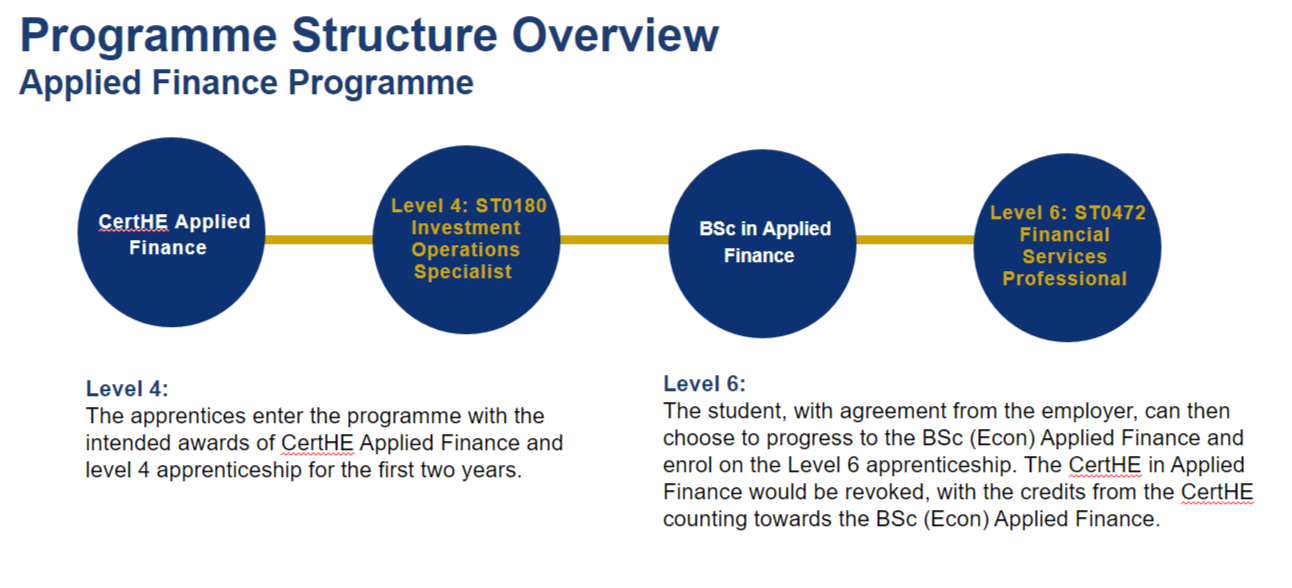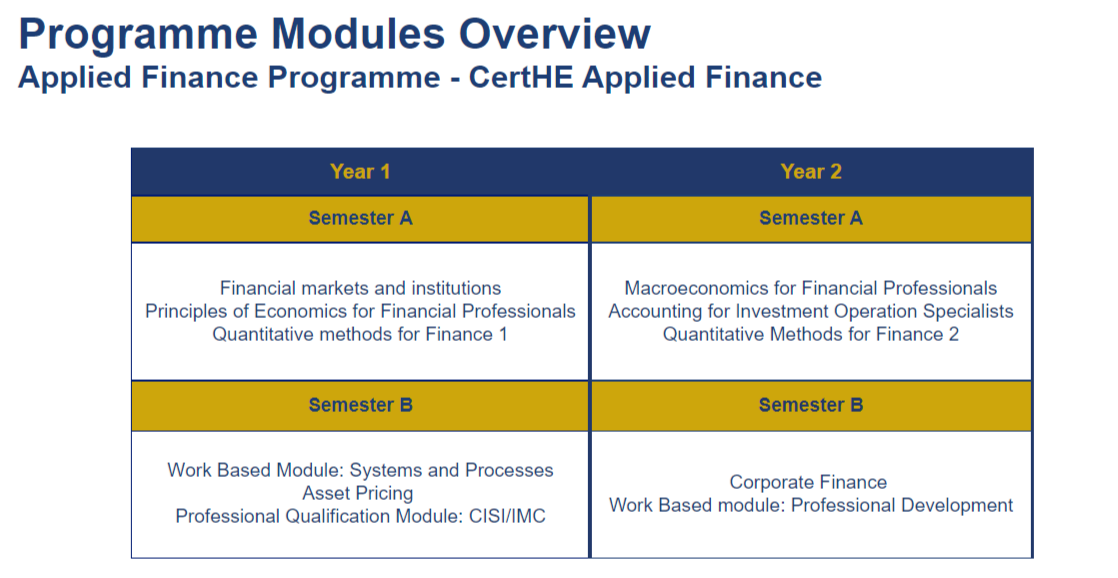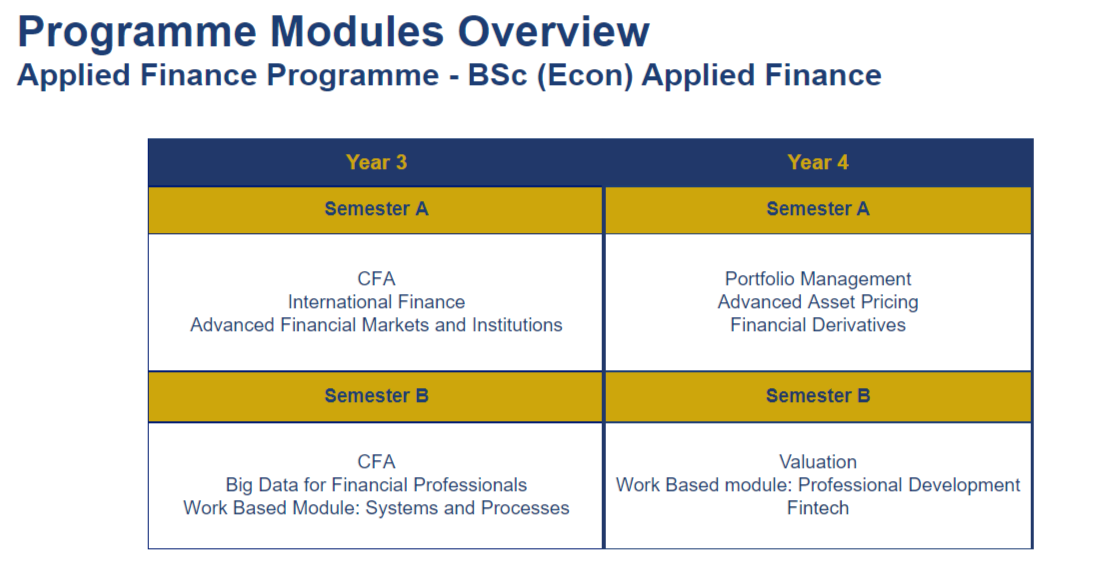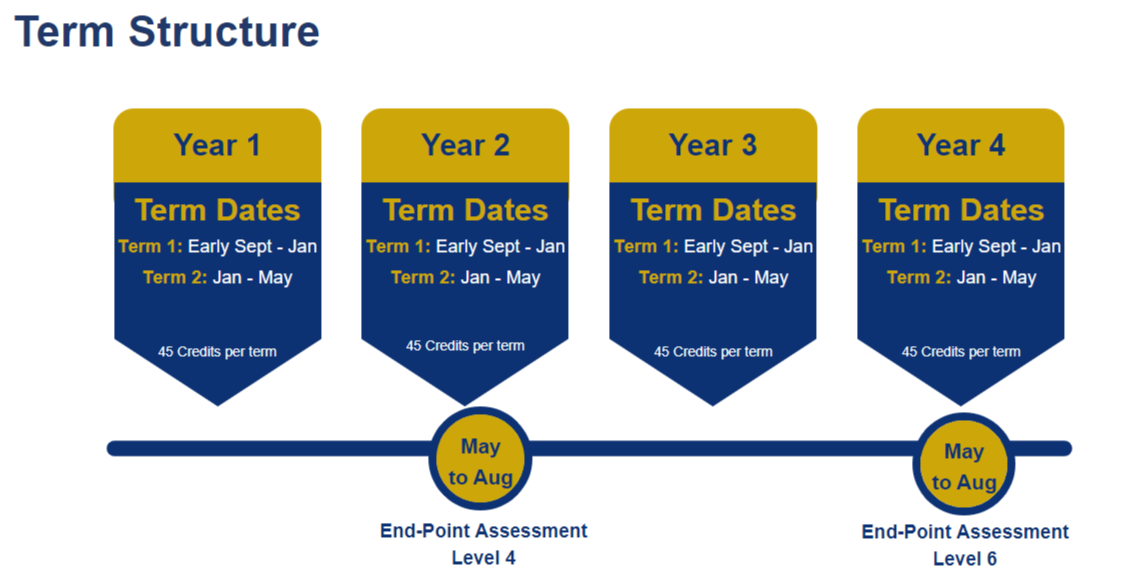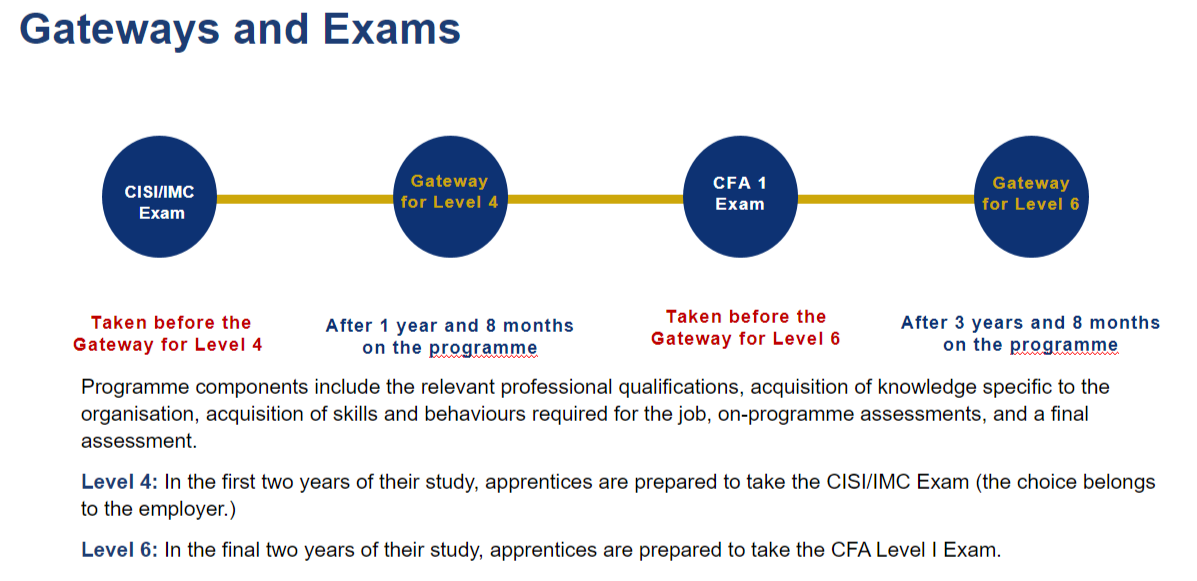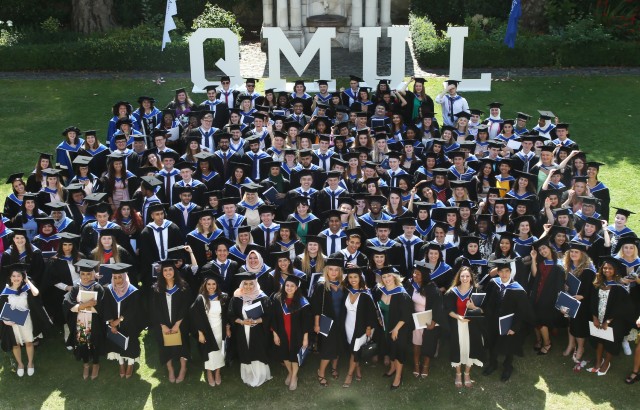Programme Overview
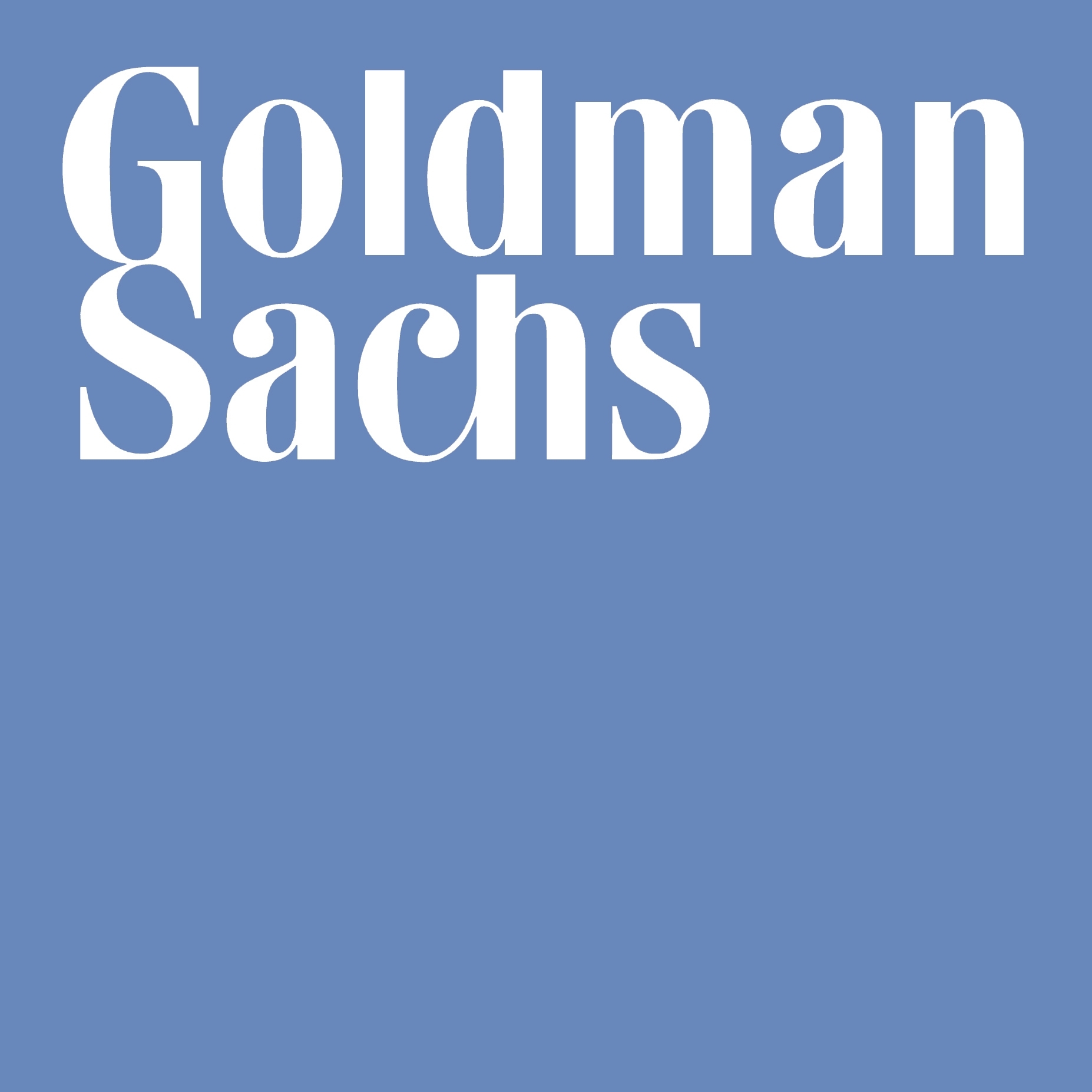
The Applied Finance programme, designed in collaboration with Goldman Sachs, consists of two parts and is aligned to two apprenticeship standards: Level 4: ST0180 Investment Operations Specialist and Level 6: ST0472 Financial Services Professional. QMUL has two employer partners for this programme, Goldman Sachs and Deutsche Bank.
The programme takes a 2+2 approach, with apprentices entering with the intended awards of CertHE Applied Finance and level 4 apprenticeship for the first two years. The student, with agreement from the employer, can then choose to progress to the BSc in Applied Finance and enrol on the Level 6 apprenticeship. This will require the CertHE in Applied Finance to be revoked, with the credits from this programme counting towards the BSc in Applied Finance. (This also provides a potential ‘top-up’ route for apprentices with the relevant APL and industry experience to join the programme for the +2).
Dr Radoslawa Nikolowa is a Senior Lecturer in economics and finance at Queen Mary University of London and a research associate in the Financial Markets Group (LSE).
Read more about Dr Radoslawa Nikolowa.
Both programmes will be 180 credits with an intended 2-year duration. Students will take 90 credits in each developmental year. Modules in the programme are weighted towards levels 4 and 6, with a condensed level 5 that covers the Knowledge, Skills, and Behaviours (KSB) for both apprenticeship standards.
Each apprenticeship standard has a professional qualification that acts as a pre-requisite for reaching the EPA. For the level 4, there is a choice between the CISI Investment Operation Certificate (IOC), which is a level 3 qualification, and the CFA IMC. For level 6, we will be offering training for the CFA 1 as the professional qualification. These modules are 30 credits for each programme (2+2).
A-levels - we require AAA from three A-levels, and this must include Mathematics (or Pure Maths). General Studies, Critical Thinking and Use of Maths are not accepted.
BTEC - for all programmes within the School of Economics and Finance, candidates with BTEC qualifications are considered on a case-by-case basis. All BTEC subjects are considered although Grade A in A-Level Mathematics is required in addition to the BTEC
EQP – we welcome candidates taking the Extended Project Qualification (EPQ). Our policy on offer making including EPQs is detailed online qmul.ac.uk/undergraduate/entry/epq
CONTEXTUAL OFFERS - we consider every application on its individual merits and will take into consideration individual educational experiences and context.
Once a candidate is deemed to be eligible they will be issued with a SITS direct application form (this will need to be created by Admissions as is the case for all new programmes with direct entry). Thereafter the process will follow standard admissions procedure where checks will be made against the academic entry requirements, and candidates ATR'd by central admissions colleagues once they have met all the relevant requirements.
Applications must be submitted directly to participating employers via their website.
In order to be considered for an undergraduate degree at the School of Economics and Finance, participants will need a Maths qualification.
During the first year of studying at Queen Mary, participants will cover core mathematical techniques in the first-year modules Principles of Accounting, Asset Pricing and Quantitative Methods for Finance. Some of these subjects participants might have come across during A-Level maths for example, but at university, they will cover them at a more advanced level. During the rest of a student's studies, the toolkit that they develop during the first year will be used in their core Finance modules.
We do not study Maths just for the sake of it, but because it gives us a precise tool to study the world around us. There will be plenty of opportunities for participants to develop their mathematical proficiency during their university studies. This includes weekly Maths and Statistics support classes that we offer students, through our Peer Assisted Study Support scheme.
Apprentices are supported by a dedicated team at the School of Economics and Finance, who advise them on the best approaches to learning to enable them to achieve their potential.
- Senior Tutor- all School of Economics and Finance apprentices on the Applied Finance programme are assigned a senior tutor who will usually remain with them for the duration of their studies.
- Programme Manager - additionally, we have a Programme Manager who will be available as a point of contact and actively reach out to apprentices where there are any concerns that they may be experiencing difficulties (e.g. assessment issues).
- Career Development - Apprentices are given insights into finance in a broader sense, and we use this opportunity to review and develop their KSBs as part of their ongoing personal development.
- Mental Health Drop-In Sessions - If apprentices need to talk to someone confidentially about something they are going through, they can join the school’s Mental Health ‘Drop-in’ Sessions which we offer online and in-person support with the school's qualified Mental Health First Aiders. In addition, Mental health support at Queen Mary is split between two teams: the Advice and Counselling Service, and the Disability and Dyslexia Service.

